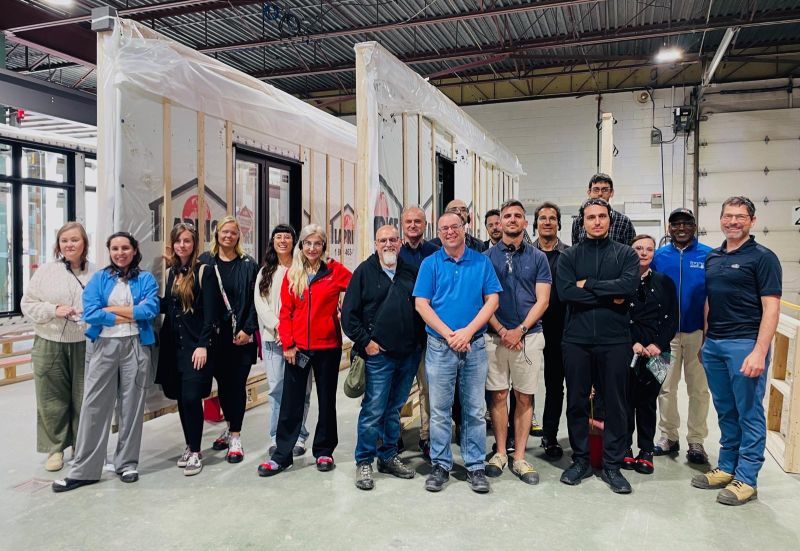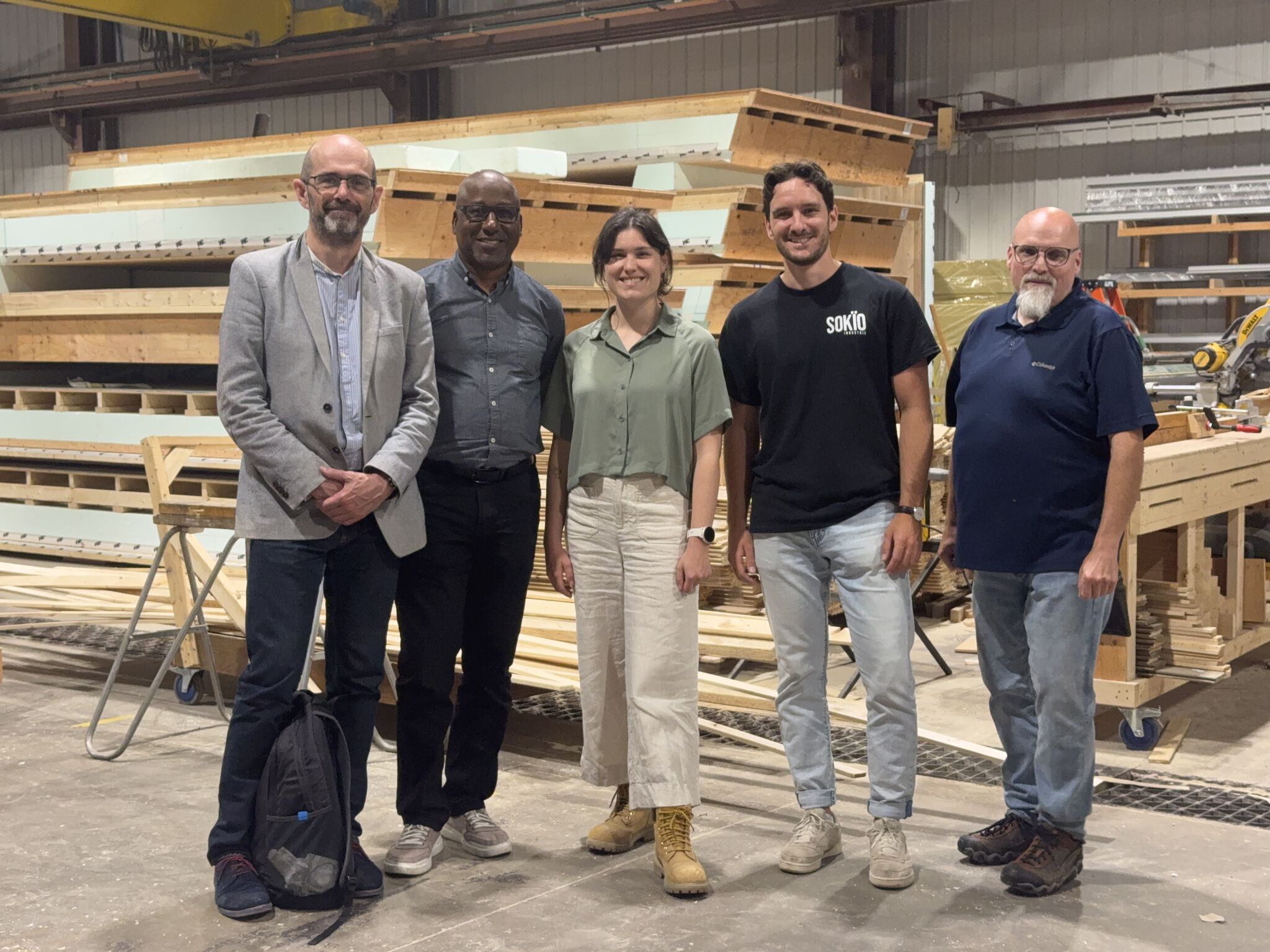International Meeting of the Horizon Europe INGUMA Project at Université Laval: A Key Milestone for Innovative Bio-Based Materials!
From July 2 to 4, 2025, Université Laval had the honor of hosting the mid-term meeting and the fourth General Assembly of the Horizon Europe INGUMA project (Fostering innovative bio-based materials in the construction sector). This strategic event was held in a hybrid format, bringing together partners both in person at the Gene-H.-Kruger Pavilion and online, thus enabling smooth international collaboration among the nine European countries involved in this ambitious initiative.
The main goal of the meeting was to assess the progress of work related to the design and development of innovative bio-based materials intended for sustainable construction. More specifically, partners presented their advancements in the development of building envelope components and substrates for green roofs. These materials will be integrated into demonstration buildings located in Spain and Finland, allowing their performance to be evaluated under real-world conditions.

In this context, Université Laval—through the de la Chaire de recherche du Canada en Bâtiments Durables (CRC-BD) led by Professor Pierre Blanchet—plays a pivotal role. The local team is responsible for the rigorous assessment of the technical, environmental, and economic performance of these emerging materials. Furthermore, they actively contribute to the dissemination of best co-creation practices—a collaborative approach that fosters innovation and supports the adoption of bio-based solutions tailored to the real needs of the construction sector.
This meeting also served as an outstanding showcase for the expertise and leadership of Université Laval and the Renewable Materials Research Center (CRMR) in this forward-looking field, further strengthening ties with leading European partners.
A key highlight of the event was the World Café-style co-creation workshop, which brought together fifteen representatives from Québec’s construction industry. This exchange forum enabled participants to collectively identify barriers and drivers to the acceptance of bio-based materials, shedding light on the economic, technical, and cultural factors influencing their adoption.
The event also provided a valuable platform for young researchers affiliated with the CRC-SB. These students had a unique opportunity to present their research projects before an international panel of experts, receiving constructive and enriching feedback while gaining visibility on the global scientific stage.
As part of the gathering, participants also had the privilege of visiting the facilities of Maisons Laprise on Friday, July 4. The Maisons Laprise team was especially welcoming and generous in sharing valuable insights, including their ambitious expansion plans for the coming years. Special thanks to Daniel Laprise, Stéphane Lessard, and the entire team for their warm hospitality and availability.

On July 8, 2025, Pierre Blanchet and Javier Garcia Jaca—representative of TECNALIA and coordinator of the European INGUMA project—visited the facilities of SOKÏO Industrie as part of their shared commitment to showcasing the real-world impact of research in the field of prefabrication. SOKÏO, a visionary young company, is breaking new ground by integrating robotic cells into the production of cross-laminated timber (CLT) wall systems, with preassembled building envelopes. This bold technological approach left a strong impression on the European partner.
Sokio’s co-founders, Étienne Julien and Émilie Lachance, are former graduate students from Professor Blanchet’s research chair. They successfully transformed the outcomes of their master’s research into an exemplary entrepreneurial venture, highlighting the tangible impact of the CRMR in the field of sustainable construction.
Each visit to Sokio reflects the company’s rapid growth and the ingenuity behind systems that integrate renewable materials.

The visit of the INGUMA project partners to Québec is a clear recognition of the international influence of the CRMR and the CRC-SB Chair, as well as of Professor Blanchet’s renowned expertise in bio-based materials for sustainable construction. The diversity of participants, with eight European countries represented in person, reflects the scope and significance of this collaborative project on a global scale.
The INGUMA project brings together major academic and industrial institutions from nine European countries, combining their expertise to accelerate the development of innovative solutions based on renewable resources, aligned with the broader goals of ecological and energy transition.

